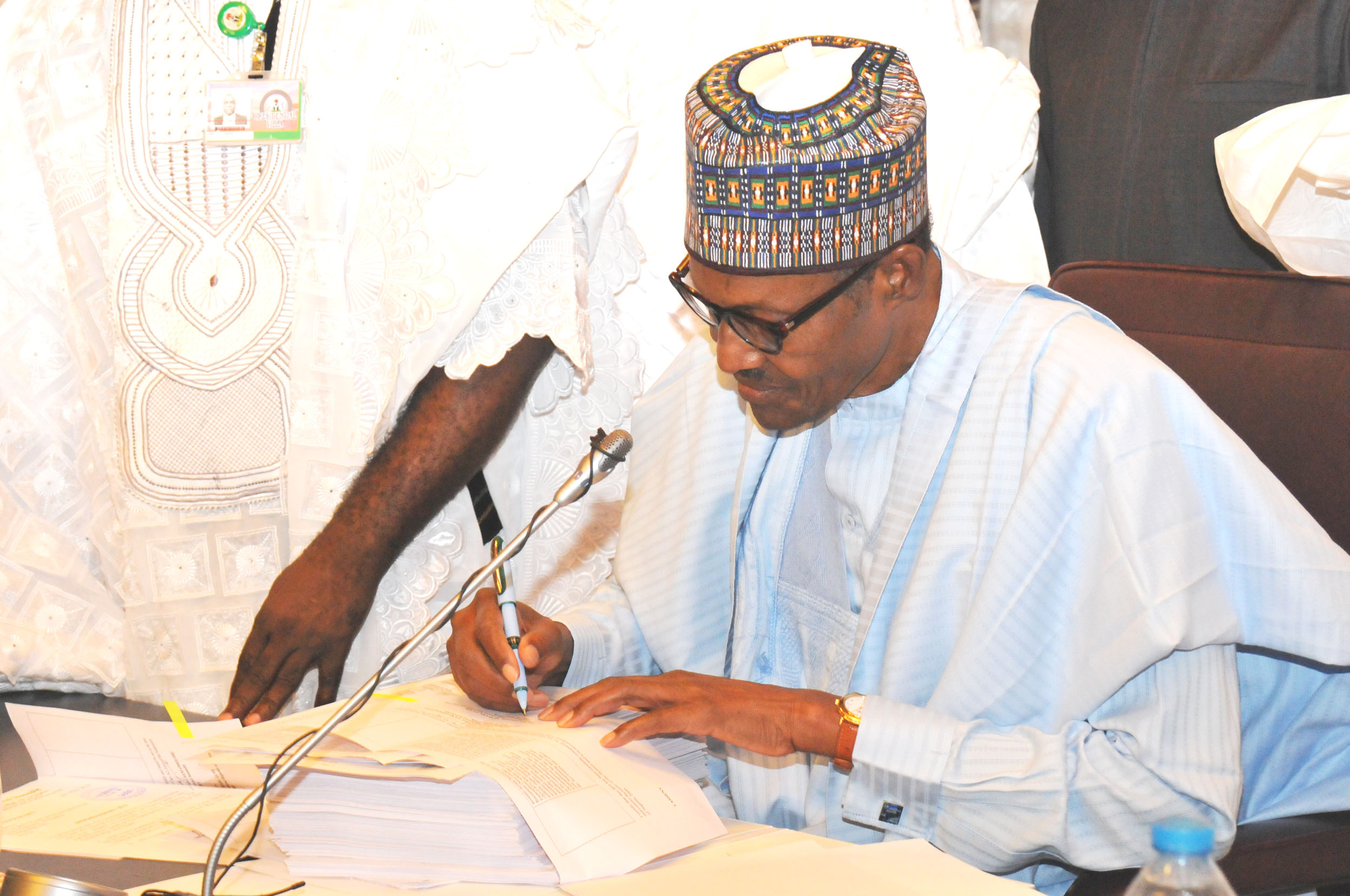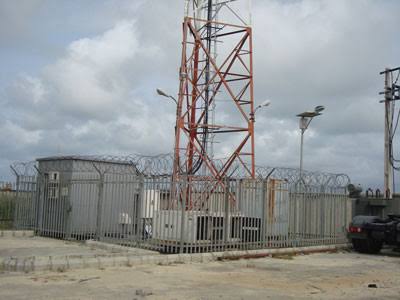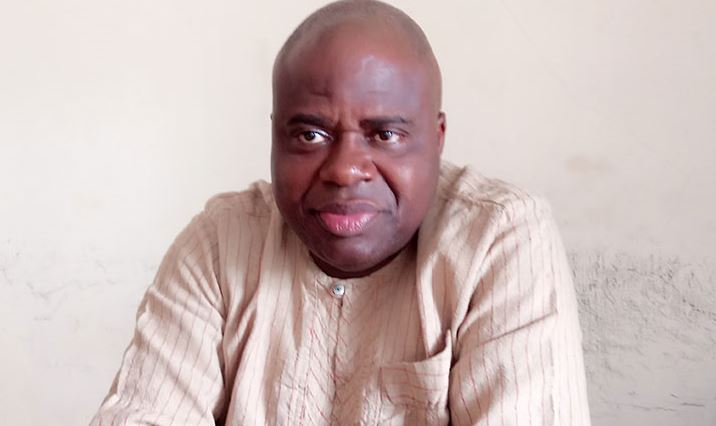v
Pic 1. President Muhammadu Buhari signing the 2018 Appriation Bill into law at the Presidential Villa in Abuja on Wednesday (20/6/18)
03267/20/6/2018/Callistus Ewelike/NAN
On the 7th of August 2020, President Muhammadu Buhari assented to the Companies and Allied Matters Act, 2020 (CAMA 2020), which in effect repeals the Companies and Allied Matters Act, 1990[1](the “Repealed Act”). By popular opinion, the passage into law is a welcome development and both the 9th Assembly and the President are duly commended.
Following the passage of the Bill into Law much has been written, highlighting the changes the new CAMA brings, much is also now being talked about of the traps and loopholes that also exist. The Act as we now have it is imperfect but a good law; it will evolve by usage like every other law.
The aim of this article is not to rehash the gains but to address the provision of section 839 (1) and (2) and its relation to Trustees of Non-Governmental Organizations (NGOs) that has now been spotted by others as not being in the best interest of NGOs. This section seems to gain the most notoriety – for now. It is spoken of as a gag by the Federal Government on NGOs and a sneaky way of introducing the unpopular NGO Bill into CAMA. While it is true that the Buhari-led administration is light years away from observing democratic norms especially as it relates to fundamental human rights, the perception of this provision as a decoy to gag critics is untrue.
Suspension of Trustees and Appointment of Interim Manager(s)
Advertisement
Section 839 (1) empowers the Commission to suspend trustees of an association and appoint interim managers to manage the affairs of the association where it reasonably believes that-
(a) There is or has been misconduct or mismanagement in the administration of the association;
(b) it is necessary or desirable for the purpose of;
Advertisement
i. Protecting the property of the association
ii. Securing a proper application for the property of the association towards achieving the objects of the association, the purpose of the associationof that property or of the property coming to the association,
iii. Public interest; or
(c) the affairs of the association are being run fraudulently.
Advertisement
By the foregoing provision, the Commission can lawfully suspend the trustees of an association on the grounds stated above. If the subsection were to end there, the concerns of unbridled power raised would have been justified, but it does not end there.
Subsection 2 provides as follows:
1. The trustees shall be suspended by an order of Court upon the petition of the Commission or Members consisting of one-fifth of the association, and the petitioners shall present all reasonable evidence or such evidence as requested by the Court in respect of the petition.
Subsection 2 therefore expressly provides for –
Advertisement
A. Who has the locus to suspend the Trustees?
Answer: The Commission and the Members of the association in question.
Advertisement
B. What are the Conditions Precedent before the action for suspension can be heard?
Answer: A petition detailing grounds of a breach as stated above, reasonable evidence, and with Members – a quorum of one-fifth.
Advertisement
C. How can the Trustees be suspended?
Answer: By an Order of Court.
Advertisement
This provision is not ambiguous.
Thus, the discretion of the Commission in its “reasonable belief” is still subject to the approval of the Court, the likelihood of arbitrariness by the Commission in subsection 1 is curtailed by subsection 2; if the Commission (or members) acts outside Sub 2, it is null and void.The Registrar General cannot just wake up on the wrong side of the bed as being touted and suspend the Trustees. The law is not subjective to sleep positions. It is the Law. There are grounds for which evidence must be adduced by people recognized by law to obtain an Order of Court before the power conferred can be exercised.
Subsection 3 provides for the hearing of the petition and the appointment of the Interim Managers by the Court with the assistance of the Commission. The Interim managers are designated by the Court or the appointment of any person who cannot do as otherwise instructed without the approval of the Court.
The Court has the final say, not the Commission and not the Members. If the argument against this provision is that of lack of trust in the Judiciary to play its role by law, that is a different conversation altogether and not the object of this article. The grey area of this section for me is sub (E) solely because the Commission is not a financial institution.
There are also the agitators who do not want NGOs to be regulated at all. The NGOs are registered under CAMA, CAMA is the regulatory body for all the entities registered under it. There must be regulation however minimal, infallibility is not a characteristic of man’s nature, human or juristic. We also cannot guilelessly assume that NGOs are not error-prone (including churches), many before our eyes have gone astray and government the world over – where necessary – will fall on the principle of paternalism chiefly for the public interest. There is no foul here.
Given the clarity of Section 839, the defined roles of all stakeholder- the Commission, Members, and the Court, I cannot see how this misinformation could have flourished to be the number 1 trending topic on Nigeria twitter; the religious coloration is also unfounded–both churches and mosques are under Part C of CAMA; the same law applies to all and sundry. Unfortunately, Pastor Oyedepo of Living Faith Church has also been misinformed and his “timely warning” and prophecies on this matter are premised on error. It will not work. I am more inclined to redirecting these warnings and prophesies to Boko Haram and the perpetrators of insecurity in our land, for that it must work in Jesus’ Name, Amen.
Rudimentary rules of interpretation frown at reading a section of law in isolation of its other subsection (s), for non-lawyers, this may be excused but for lawyers who know better, it is pure mischief.One is tempted to ask. To what end?
It is easier to align issues and interpret them along the lines of our biases, inadvertently sliding down a dangerous path; for our own survival, we owe ourselves the vigilance of objectivity not to be swayed by transient clickbait.
@FlorenceOzor
Views expressed by contributors are strictly personal and not of TheCable.
1 comments








Its only God that will bless the hands that wrote this